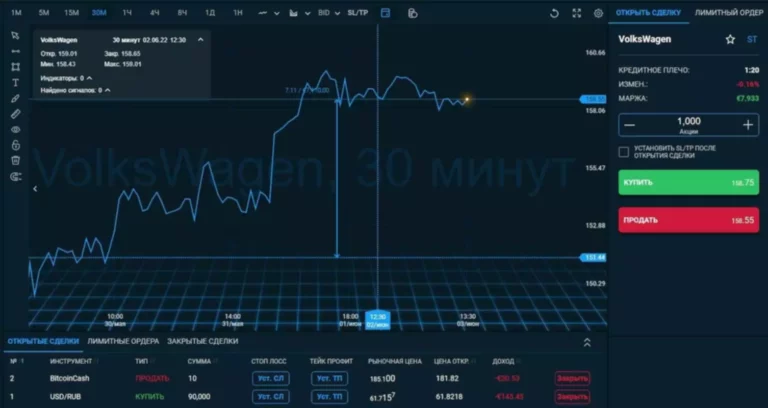When it involves backup and recovery potentialities, self custodial wallets or non-Custodial crypto wallets lag behind the Custodial one. Whereas, in the case of Non-Custodial wallets, all of the blockchain custodian companies reside with users. Yes, custodial wallets are safe to use but customers have to do their own analysis before choosing one. It is healthier to pick out custodial wallets that comply with rules and offer sturdy security and insurance coverage coverage. Non-custodial pockets users directly authenticate transactions with out involving centralized entities, so they’re usually faster. Transaction costs are additionally cheaper as a result of there are few or no commission-seeking intermediaries.
If safety and maintaining full management over your funds are your priorities, choosing a non-custodial wallet may be the preferable choice. And with these early versions, self-custody was typically slower, much less convenient, and a riskier experience for model spanking new customers. Many individuals learned the onerous way that when you lost your keys, you lost entry to your assets, forever. The key distinction between custodial and non-custodial wallets is who has custody of the wallet’s personal keys — and, subsequently, control of the funds. These providers use advanced technologies corresponding to multi-signature authentication, encryption, and chilly storage to guard users’ belongings.
What’s The Distinction Between Custodial And Non-custodial Wallets?
This makes it an ideal possibility for beginners who’re new to cryptocurrency and is in all probability not acquainted with the technical aspects of managing their wallets. A personal secret is a cryptographically generated string of characters that acts as a password to handle consumer funds and create a backup wallet https://www.xcritical.com/ on a new device. The private key helps to prove asset possession, create digital signatures, and execute transactions on the blockchain. Custodial wallet holders enjoy peace of thoughts because they don’t need to fret about shedding their personal key.

Dollet, a non-custodial pockets, empowers users with seamless cryptocurrency administration and storage, alongside safe entry to DeFi strategies, all inside a single platform. Diverging from centralized custodial options, Dollet grants users complete control and possession rights over their digital belongings. Moreover, the wallet’s integrity is underscored by successful audits performed by CertiK and DeusSec. This implies that the custodian (the third party) is responsible for the security and administration of the funds. Your personal key, however, features similarly to a secret password in that it signs transactions and grants access to your pockets.
Another issue to contemplate during Custodial and Non-Custodial crypto pockets comparison is the transaction sort. Please notice that the availability of the services and products on the Crypto.com App is subject to jurisdictional limitations. Crypto.com could not offer certain products, options difference between custodial and non custodial wallet and/or companies on the Crypto.com App in sure jurisdictions as a end result of potential or precise regulatory restrictions. The purpose of this website is solely to show data concerning the products and services out there on the Crypto.com App.
Custodial
This signifies that they can access their cryptocurrency at any time, and they do not have to fret about a third celebration managing their funds. Additionally, non-custodial wallets tend to be more secure, as the user is in charge of their private keys. Firstly, they can be more difficult to use, because the person is responsible for managing their cryptocurrency. Secondly, if the user loses their personal key, they might lose access to their cryptocurrency eternally. With non-custodial wallets, nonetheless, users need to be extra careful since losing one’s private key means shedding all their assets. To protect their cryptocurrency, customers need to securely store their restoration phrase (also referred to as a seed phrase), a 12, 18, or 24 character mnemonic phrase used to regain access to one crypto wallet.
How you safeguard and access that vault depends on the kind of wallet you choose. While non-custodial choices allow you to reap the benefits of superior options, this can require some technical know-how that newbie holders may not have. Part of the rationale why custodial choices have turn into so in style is that they simplify the expertise of shopping for cryptocurrency and offer a very similar experience to different Internet-native apps. Self-custody wallets are a suitable possibility for users who prefer long-term holding and who want full accountability for their private keys. Regardless of the method, it’s essential to have a secure wallet to store your crypto assets. A wallet generates a novel tackle that serves as an identifier on the blockchain.

But if you’d like a service supplier to handle your storage needs while you commerce or make investments, you presumably can look for reputable custodial pockets service providers. Examples of non-custodial services are hardware wallets like Ledger and Trezor or software wallets like Tonkeeper and Trust Wallet. When you store your cryptocurrency in certainly one of these wallets, you preserve full management over your private keys and, thus, your belongings.
Custodial Vs Non-custodial Wallets: What’s The Difference?
Custodial wallets are practically at all times web-based, and are usually offered by centralized crypto exchanges like Coinbase. Most exchanges’ interfaces are designed so users never even need to immediately work together with their wallets. This user-friendliness means custodial wallets are generally most well-liked by newcomers, to whom the comfort factor of not having to manage their private key themselves is a giant benefit. A custodial wallet service (like Coinbase or Kraken) holds on to the non-public key, so it is answerable for safeguarding a user’s funds. A non-custodial pockets (also often known as a self-custody wallet) on the opposite hand, gives users full control over their personal key, and with it sole duty for protecting their holdings. A non-custodial wallet, or self-custody pockets, is where the crypto proprietor is fully answerable for managing their very own funds.
Custodial wallets, offered by centralized exchanges or third-party providers, manage your non-public keys for you, necessitating trust in them to safeguard your funds. While this could be more handy for some users, it additionally exposes you to the risk of dropping your funds if the service is hacked, goes bankrupt, or engages in fraudulent behavior. Non-custodial wallets provide you with full control over your keys and funds with no third-party guardian. Furthermore, non-custodial transactions are usually sooner as a result of there isn’t a need for withdrawal approval.

Because they’re much like different purposes native on the Internet that only require a username and password, they have been in a position to onboard lots of of tens of millions of customers into the world of crypto. Many self-custody wallets are actually providing a big selection of superior features and new opportunities for people who want to make higher use of their belongings. These wallets may be accessed through a web browser or mobile app, making it simple for users to watch their balances and make transactions.
Conclusion — Custodial Or Non-custodial Pockets: Which To Choose On
For these looking for the highest degree of security for his or her crypto property, hardware wallets are the popular selection. Deciding between a non-custodial and custodial crypto pockets type is basically a matter of deciding which features in a pockets are most necessary to you. Custodial wallets are usually most well-liked by newcomers and these who value the set-and-forget nature of managing their crypto via an trade or different centralized pockets provider.

Additionally, most custodial wallets are insured, meaning that within the event of a hack or theft, customers will receive compensation for their losses. Some crypto customers say this means custodial wallet customers don’t truly “own” their crypto, since they don’t control the personal key. In this text non-custodial within the context of blockchain pockets means a type of pockets that allows customers to personal their personal key, that are in encrypted storage. So, even should you lose your private key or forget the mnemonic phrase, it’s simple to regain access to your pockets and your saved funds. In conclusion, each custodial and non-custodial wallets have their advantages and drawbacks.
However, you are solely answerable for your seed phrase and private keys’ security when using these wallets. A cryptocurrency pockets is a software or hardware medium that lets you work together with a blockchain community. For custodial wallets, the better selection shall be to discover a jurisdiction with particular laws for companies in digital assets. Ideally, the jurisdiction should have relatively straightforward regulation and an uncomplicated authorization or licensing process. Firstly, the user has to belief the third get together to handle their cryptocurrency correctly. This implies that if the third get together is hacked, the user’s cryptocurrency may be lost.
Other Associated Companies From Rejolut
Remember that whether or not you employ a custodial or non-custodial pockets, you should all the time be cautious and comply with finest practices to protect your funds. Remember to conduct your individual analysis and choose a wallet that most precisely fits your particular preferences. Some wallets also let you store and transfer non-fungible tokens (NFTs) issued on a blockchain.
People generally understand that crypto wallets are used to retailer cryptocurrencies and execute transactions on a blockchain network. A custodial solution in cryptocurrencies refers to a wallet or service the place a third party, sometimes a financial establishment or an exchange, holds and manages your private keys. Giving away full accountability over your non-public keys is each a benefit and a drawback. Some custodians, such as major centralized exchanges, may be weak to security breaches and exploits, so making a present of responsibility to a custodian won’t guarantee you total security. In a situation where you lose or neglect your password, you can request a new password out of your custodian since they’re the party that finally has access to your private keys. This means you do not have to personally store and protect your recovery phrase.
On the opposite hand, a private key is type of a password with which users can entry their funds or signal a crypto transaction. Self-custodial wallets are extremely safe if the user follows finest practices for pockets safety and employs robust security measures. This, nonetheless, implies that you’re entrusting your private keys to a third get together.
